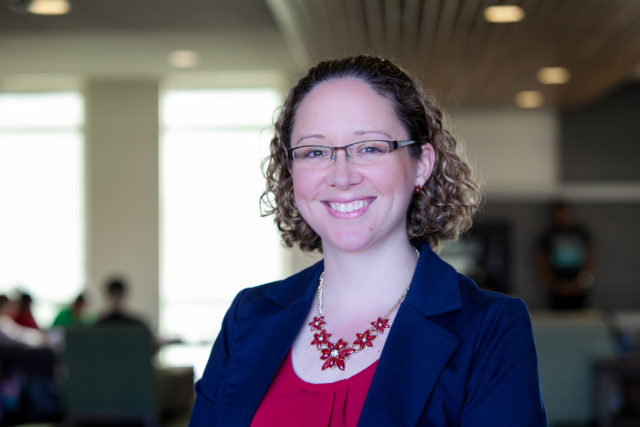By Kaitlyn DeHaven | Design Editor
Balancing school, work and life can be a hard task for college students and adults alike. Luckily, Baylor has a resource in Dr. Emily Hunter, an assistant professor of management and entrepreneurship at Baylor, who is an expert on achieving work-life balance.
Hunter said that work-life balance is not the same for everyone. Instead, she said that it varies from person to person and it miay change many times throughout one’s lifetime.
“To me, balanced does not mean equal,” Hunter said. “I think that balance is different for every person and I’m a strong believer that you have to define balance for yourself.”
According to a mental health study done by the Associates Press and MTV in 2008, six in ten students have felt so stressed in the past month that they could not do their school work. In addition, the study also stated that school work is often the cause of this stress.
Dr. Jim Marsh, the director of the Baylor Counseling Center, said stress is the No. 2 reason that students visit the Counseling Center.
Hunter said that stress is something students deal with a lot while trying to balance a social life and school. She said that while students find time away from schoolwork is vital to their success, they must also make sure that they are making goals in order to experience more positive emotions.
“This is all about coping with stress and having time when you’re free from stress to relax,” Hunter said. “If you set goals and then track your progress in meeting those goals, then you can focus on those benefits that you’re receiving, even though you’re experiencing interruptions.”
One of those conflicts, Hunter said, might be when a student stays up late to study for a test, they experience an interruption from sleep, but then meets their goal by making a good grade in the class. In turn, the student experiences a lot of positive emotions and it shows that it’s not always negative to have those interruptions.
Hunter also shared that one of the best ways to prevent work and life intermingling to the point of chaos is to use different modes of communication for varying levels of priority.
“A phone call at home might be an emergency issue — high priority — a text message might be a lower priority and an e-mail might be something low priority that you could address the next day,” Hunter said.
She said if we communicate this to our friends and family, it would minimize interruptions and allow us to be present in the situations we are in.
Overall, Hunter said that if she had one piece of advice for people trying to achieve a work-life balance, it would be to find your own definition of balance.
“Find what balance means for you, define that and recognize that it may change over time and that’s OK,” Hunter said. “Set goals for yourself, for the balance you want to achieve and don’t look left and right to other students to help you define balance because it’s going to be unique to each person.”



